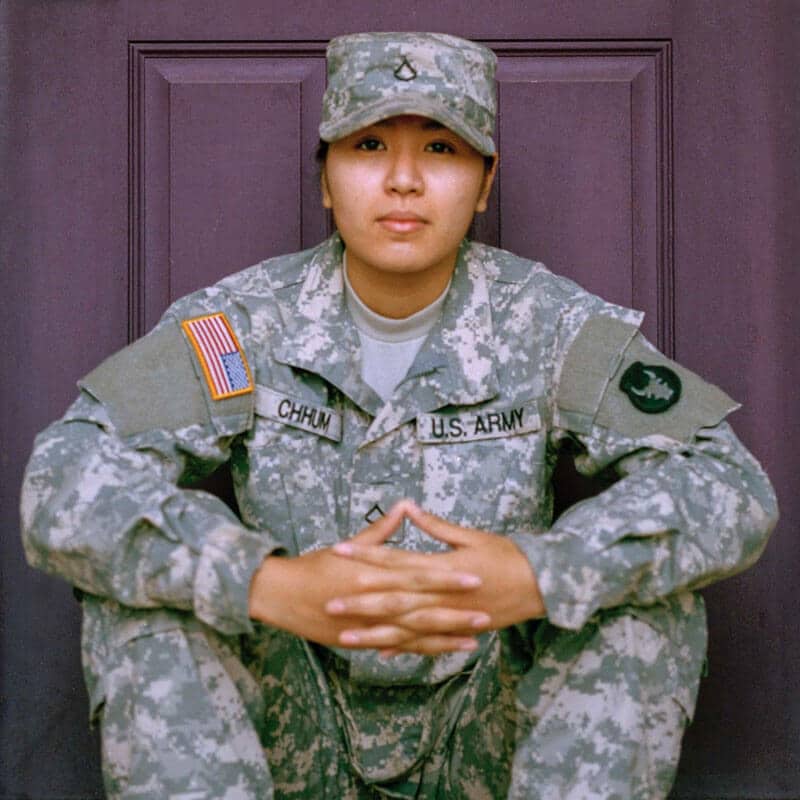I’m an expert on PTSD and war trauma but I won’t do the 22 push up challenge

I’m an expert on PTSD and war trauma but I won’t do the 22 push up challenge
Opinion + AnalysisHealth + Wellbeing
BY Nikki Coleman The Ethics Centre 27 SEP 2016
I’ve taught thousands of brave men and women at the Australian Defence Force Academy for the past six years. I’ve cooked for many of them in my home and shared a river of tea and coffee with others.
Many have been broken by their experiences in the military – for some I have literally taken the rope from around their neck, the pill bottle from their hands and talked them off the edge of a cliff. They are the walking wounded the Prime Minister is seeking to help.
Given all this, it was no surprise a friend invited me to complete the ‘22 push-up challenge’, a campaign to raise money and awareness for PTSD. 22 push ups for 22 days to represent the 22 veterans killed by suicide according to the US Department of Veterans Affairs.
But I’m not going to take part in the 22 push up challenge.
I’m a philosopher currently completing a PhD on the subjects of veteran PTSD and moral injury, so I understand the importance of awareness and support for soldiers currently serving, as well as veterans after they leave the ADF. Awareness raising is crucial for veterans because the feelings of isolation and disconnection from the civilian community can exacerbate the severity of mental health issues proceeding from trauma.
It also reflects on us as a community how well we are willing to care for those who have put their lives on the line to protect our country or innocent people overseas. Our wounded vets deserve the very best treatment, the very best care. They and their families risk everything for our safety. It goes without saying they deserve treatment to help them to heal. But although the treatment for Australian veterans with mental health issues like PTSD could be better, it is much better than for anyone else with PTSD.
Veterans are overrepresented in media coverage and funding allocations to do with trauma and mental health.
Last year a non-veteran family member suffered from PTSD. They were on suicide watch, requiring me to work from home and balance professional commitments, my academic research and the crucial task of preventing a loved one from dying. During this time hospital services were unavailable – in practice, it feels like there is simply nowhere for non-veterans to go.
If they were a veteran, it would have been different. There are specialised treatment facilities available for them, which I know because we were turned away from each of them.
I take no issue with the fact treatment is available for veterans. As I’ve said, they deserve more than what is presently available to them. However, the media attention provided to veterans is vastly disproportionate to the actual experience of trauma-related mental illness in Australia.
Most cases of PTSD are those recovering from rape and sexual abuse and the majority of sufferers are women. The majority of patients are men, in part because it could re-traumatise female survivors of sexual abuse to be in therapy with men and in part because the professions who tend to receive trauma support are male dominated. Most of our treatment facilities are also allocated for veterans with PTSD, largely because places in these treatment programs are funded by the DVA and veteran-based charities. In short, veterans are overrepresented in media coverage and funding allocations to do with trauma and mental health.
It’s not obvious why a certain group should enjoy special privileges in the civilian healthcare system.
The government recently announced a new suicide prevention initiative for ADF personnel and while it’s true there is also a broader focus on suicide prevention, women’s shelters and rape crisis centres continue to battle for funding despite the strong association between sexual assault and mental health issues.
This seems to fly in the face of standard medical ethical principles, which suggest treatment is provided on the basis of need rather than the social status of the patient. These principles would suggest the cause of trauma – whether war, sexual assault or otherwise – should have no bearing on whether a patient receives treatment in a civilian facility.
While we can make exceptions in cases where the ADF provides special support to its men and women, it’s not obvious why a certain group should enjoy special privileges in the civilian healthcare system. Those suffering the same condition are in equal need of care.
If the recent Royal Commission into Institutional Child Abuse has taught us anything, it’s how many people with severe trauma suffer in silence, unable to access the support they critically need. It’s not clear to me that veterans are the ones most desperately in need of increased awareness.
One of the advantages of awareness raising is its ability to reduce the stigma surrounding mental health and trauma. In the ADF this is crucial, because research suggests there are still high levels of stigma surrounding PTSD in our defence forces.
In the desire to fix this problem we need to be careful not to generate another one. If all our awareness-raising efforts around PTSD are focused on veterans, we risk invalidating the experiences of those suffering trauma-related mental health issues who have never been to war.
Ethics in your inbox.
Get the latest inspiration, intelligence, events & more.
By signing up you agree to our privacy policy
You might be interested in…
Opinion + Analysis
Health + Wellbeing, Relationships, Science + Technology
How to put a price on a life – explaining Quality-Adjusted Life Years (QALY)
Opinion + Analysis
Science + Technology, Health + Wellbeing
Does your therapy bot really care about you? The risks of offloading emotional work to machines
Opinion + Analysis
Climate + Environment, Health + Wellbeing, Society + Culture
The five biggest myths of ethical fashion
Opinion + Analysis
Health + Wellbeing, Relationships
Your child might die: the right to defy doctors orders
BY Nikki Coleman
Nikki Coleman is a PhD Candidate and researcher with the Australian Centre for the Study of Armed Conflict and Society at UNSW Canberra. In her free time she is the “Canberra Mum” to many officer cadets and midshipmen at ADFA.
BY The Ethics Centre
The Ethics Centre is a not-for-profit organisation developing innovative programs, services and experiences, designed to bring ethics to the centre of professional and personal life.
There’s no good reason to keep women off the front lines

There’s no good reason to keep women off the front lines
Opinion + AnalysisBusiness + LeadershipRelationships
BY Nikki Coleman The Ethics Centre 14 OCT 2015
The US. military may finally be coming around on the question of women on the front lines.
In a confidential briefing on September 30, military leaders presented their recommendations on having women on the front lines to the House Armed Services Subcommittee on Military Personnel, and Defense Secretary Ashton Carter.
In the 1940s, the US military faced similar debates regarding black service personnel. Arguments regarding unit cohesion and operational capability were the most prominent against integration of white and black personnel. With the power of hindsight, we can see those arguments for what they were – scare tactics intended to keep the military segregated.
The same arguments have returned today. At the command of Secretary Panetta, the US Army underwent a two-year study to develop gender-neutral standards for specialist roles currently closed to women. The success of this standardised approach was demonstrated recently when two women graduated from the Army Ranger School.
There have been vocal critics of allowing women to attempt the Army Ranger School course. Some claim the standards were lowered for these women. This was denied by the Army at the Ranger School graduation ceremony. It was rebuked again by the Chief of Army Public Affairs who described the allegations as “pure fiction”.
These allegations are unlikely to settle down any time soon. A Congressman has requested service records of the women who graduated to investigate “serious allegations” of bias and the lowering of standards by Ranger School instructors.
This incident reveals the depth of scepticism regarding women’s ability to serve alongside men within some quarters. The standardised approach has dismissed the issue of operational capacity – the other arguments against female service are equally weak.
The potential for women to be captured and raped has been raised by opponents of women serving in combat units. This discussion ignores the sad reality – women in defence are much more likely to be sexually assaulted by their own troops than by the enemy. The 2013 Department of Defense report into sexual assault found that while women make up 14.5% of the US military, they make up 86% of sexual assault victims.
Women in defence are much more likely to be sexually assaulted by their own troops than by the enemy.
Of the 301 reports of sexual assault in combat zones in 2013 to the Department of Defence, only 12 were by foreign military personnel. The vast majority of sexual abuse victims in combat areas were abused by their own comrades, not the enemy.
Sexual abuse in the military has been a problem for decades. Why would it increase if we allowed women in combat? Rape of captured soldiers has also not been limited to women. Many men have also been sexually assaulted on capture. Sexual assault in this sphere is not about sexual desire or gratification – it’s about power and denigration of your enemy.
The second argument suggests women in combat units will affect unit cohesion. First, “the boys” won’t be able to be themselves. And second, if a woman is injured in battle men will be unable to focus on the mission and instead will be driven to protect their female colleagues.
The first argument raises a question about military culture. Why is behaviour considered inappropriate around women tolerated at all? The second argument is insulting to currently serving soldiers, whose professionalism and commitment to the mission is questioned.
To suggest soldiers would ignore the mission in favour of some other goal undervalues the extent of their military professionalism.
Soldiers overcome a range of powerful instincts in a firefight – including protecting their own lives. To suggest soldiers would ignore the mission in favour of some other goal undervalues the extent of their military professionalism.
There is also an elephant in the room. Women have been serving in combat roles for years – as pilots, on ships, as interpreters and in female engagement teams. For these women a decision regarding the position of women in combat is irrelevant – they are already on the front lines.
The Australian situation sits in stark contrast to that of the US. Gay and lesbian members have served openly for a decade, women have been fully integrated into combat units since 2013, and the Australian Defence Force now actively recruits transgender personnel.
Australia has been able to integrate women, gay, lesbian and transgender soldiers into combat units without affecting operational capability.
Hopefully the US Defense Secretary will follow the advice of his Chiefs of Staff and the leadership of the ADF. He should allow military personnel to serve in all roles in the military according to universal standards rather than chromosomes or genitalia.
Ethics in your inbox.
Get the latest inspiration, intelligence, events & more.
By signing up you agree to our privacy policy
You might be interested in…
Opinion + Analysis
Relationships
Now is the time to talk about the Voice
Opinion + Analysis
Business + Leadership, Society + Culture
Four causes of ethical failure, and how to correct them
Explainer
Relationships
Ethics Explainer: The Sunlight Test
Big thinker
Relationships










